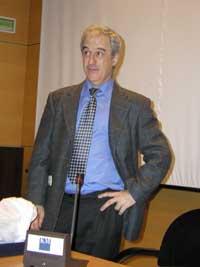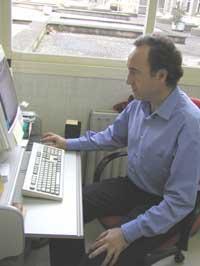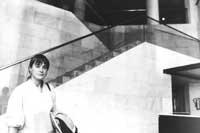Limits and challenges of the universe in the Koldo Mitxelena of Donostia
2002/03/13 Lasa Iglesias, Aitziber - STEAM Hezkuntza arloko arduraduna
Under the title 'The limits of scientific research in the early 21st century', the Miguel-Sánchez Mazas Chair of the UPV has organized six conferences at the Koldo Mitxelena Kulturunea in Donostia. Yesterday, March 12, will begin and will last for three days. Jesús Ugalde and Alberto Galindo spoke about chemistry and the universe.
Alberto Galindo Tixaire spoke yesterday with the conference 'Universe and matter: limits and challenges'. Galindo Tixaire was born in Zaidin (Huescan) in 1934, although he is a mathematician, he is Professor of Mathematical Physics of Zaragoza and Professor of Theoretical Physics of Madrid. Founder and first director of the Interuniversity Group of Theoretical Physics at the Complutense University of Madrid, he has won several awards.
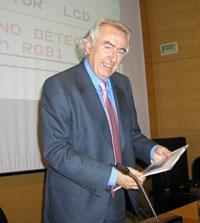
In his speech yesterday he clearly explained that "the announcement of what is coming has its danger". In 1900 it was thought that only our galaxy existed in the Universe, and in 2000 we know that the universe is made up of one hundred billion galaxies. In 1900 it was thought that the light of the stars was due to its gravitational contraction, and in 2000 we know that it is due to the thermonuclear fusion that occurs inside. In fact, if the conclusion that came out in its day had been true, the Sun would have been reduced to 70 m/year and, if so, 10 million years ago its radius would have been equal to the distance from Earth to the Sun. Impossible, since by then there was life on Earth. In 1900 it was thought that the universe was immutable, periodic and cyclical, and in 2000 we know that the Universe expands rapidly. And in 1900 matter was composed only of 92 elements of the periodic table then, while in 2000 it is believed that in the Universe 65% is vacuum energy and only 35% is matter. In addition, only 5% of this matter is conventional matter, the rest is dark matter.
Alberto Galindo also spoke about the limits of physics and the challenges that Physics will have in the future. Was there anything before the Big Bang? What is dark matter composed of? What is dark energy? Will not our Universe be part of another more plural 'multiverse'? What caused the Big Bang? These questions have no answer for the moment, so they still have much to research physicists.
The challenges of chemistry by Jesús Ugalde
Previously UPV professor Jesús Ugalde analyzed the current challenges of chemistry. He noted, among other things, that the complexity of molecules is an unstudied field, but this is not the only topic to be addressed in the future.
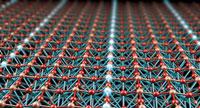
Chemists have only begun to understand the dynamics of molecules, even though they are already studying the processes that occur in the jams (10-15 seconds). On the other hand, synthesis, the electronic structure of molecules and non-destructive analysis methods have not been fully mastered. In addition, Ugalde stressed the social need to strengthen the communication of science. Many challenges still for a scientific branch developed for years.
In the Aula Magna of the Koldo Mitxelena Cultural Center there are still lectures to listen. The days will continue today and tomorrow. Know the program here.

Gai honi buruzko eduki gehiago
Elhuyarrek garatutako teknologia




